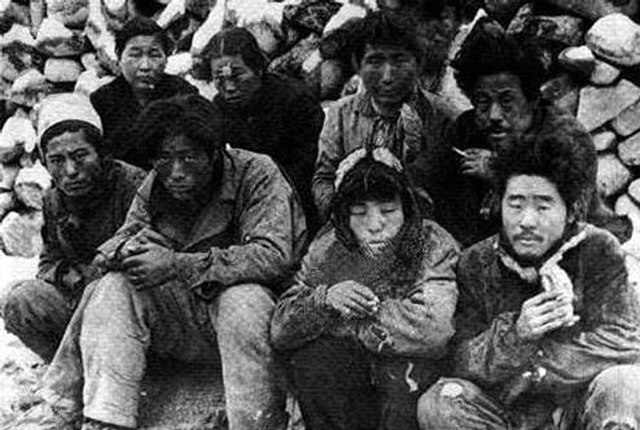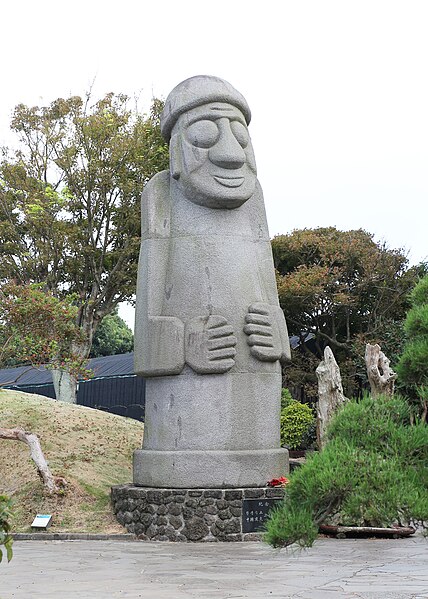Jeju Province, officially Jeju Special Self-Governing Province, is the southernmost province of South Korea, consisting of eight inhabited and 55 uninhabited islands, including Mara Island, U Island, the Chuja Archipelago, and the country's largest island, Jeju Island. The province is located in the Korea Strait, with the Korean Peninsula to the northwest, Japan to the east, and China to the west. The province has two cities: the capital Jeju City, on the northern half of the island and Seogwipo, on the southern half of the island. The island is home to the shield volcano Hallasan, the highest point in South Korea. Jeju and Korean are the official languages of the province, and the vast majority of residents are bilingual.
Suspected communist sympathizers awaiting execution in May 1948 after the Jeju uprising
Dol hareubang in Spirited Garden
Jeju World Cup Stadium.
Jeonbokjuk, abalone porridge
Jeju, often called Jejueo or Jejuan in English-language scholarship, is a Koreanic language originally from Jeju Island, South Korea. It is not mutually intelligible with mainland Korean dialects. While it was historically considered a divergent Jeju dialect of the Korean language, it is increasingly referred to as a separate language in its own right. It is declining in usage, and was classified by UNESCO in 2010 as critically endangered, the highest level of language endangerment possible. Revitalization efforts are ongoing.
Jeju inhabitants awaiting execution in late 1948
ᄒᆞᆫ디 배우는 제주어 Hawndi Baeu-neun Jeju-eo, an introductory textbook published by the Jeju Language Preservation Society





